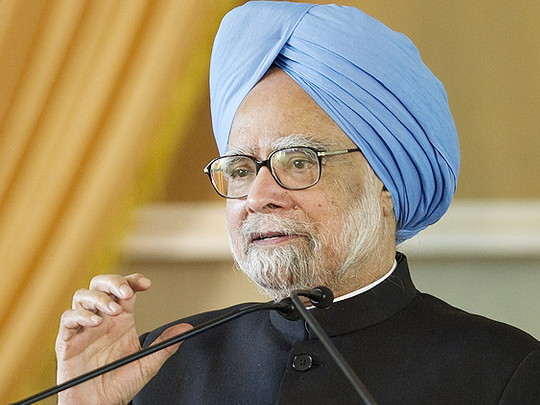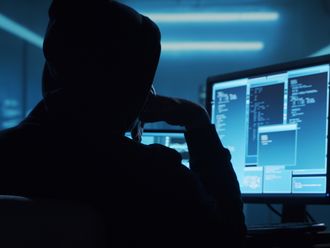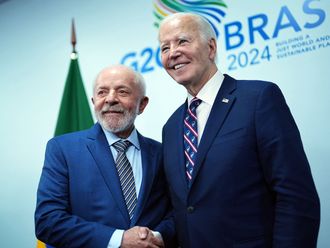
New Delhi: India's prime minister faced questions in the Supreme Court on Tuesday over his handling of an alleged multi-billion dollar telecoms scam as parliament remained paralysed over demands by the opposition for a full probe.
The court has asked Manmohan Singh to explain why he took 16 months to examine a request for his now-sacked telecoms minister to face prosecution over alleged corruption. Singh decided in the end not to approve the request from a senior opposition lawmaker.
The court began hearing the arguments of Singh's representative at 0430 GMT. Singh is not personally present at the court hearing in the capital.
Any significant criticism by the judges could make it hard for the prime minister, long seen as one of India's most honest leaders, to remain in office.
The scandal has now engulfed parliament as opposition parties have kept it shut since Nov. 9 over demands for a full parliamentary investigation into the disputes over sale of telecoms licences and radio airwaves worth billions of dollars.
The coalition government failed to break the parliament deadlock in talks with the opposition on Monday and both houses were again adjourned on Tuesday. The running of government is not affected by the closure of parliament.
"I suggested to them a multi-disciplinary team to investigate the matter, but it was not acceptable to them," Finance Minister Pranab Mukherjee told reporters.
"The stalemate is continuing, it is unfortunate."
Financial markets in Mumbai began taking notice of the deadlock, sending blue-chip stocks lower, and extended losses following North Korean artillery file at a South Korean island.
Analysts say telecoms stocks remain vulnerable given the possibility that the government may be forced to review some licences or spectrum already issued.
The government is not at risk of collapsing but the scandal has weakened its ability to move key economic measures through parliament, and the latest disruptions will further push back legislation including tax reforms and foreign direct investment.
COALITION POLITICS
Telecoms Minister Andimuthu Raja was forced to resign last week after his ministry was accused of selling licences and spectrum too cheaply in 2007-2008, possibly costing the state $39 billion in revenue, according to an official watchdog audit.
Raja is a member of the DMK, a small but crucial political party from Tamil Nadu that the Congress party relies on for maintaining a majority in parliament. Raja denies any wrongdoing.
Companies with little or no telecoms experience were sold lucrative licences for a fraction of market prices and the watchdog has said the ministry broke almost every rule in the book. Construction group Unitech Ltd was one of the firms named in the audit. Unitech has denied any wrongdoing.
Corruption has long been a major problem in Asia's third-largest economy, affecting every layer of society.
The ruling Congress party has pledged to cut graft but with kickbacks playing such a key part of getting business done in India, any serious clampdown would put at risk the stability of the entire political system.
"Cleaning up has become politically essential for the UPA (coalition government). Anything other than a genuine, transparent effort will only multiply public anger at a government that appears brazenly tolerant of corruption," said an editorial in the Indian Express newspaper.
On Monday, the Supreme Court asked the government to explain why it had appointed P.J. Thomas as India's chief vigilance commissioner, the head of a body charged with monitoring corruption, given he had a pending criminal case against him.
The Commonwealth Games was also riddled with corruption allegations and the head of the organising commission has since been forced to resign as head of the Congress party in the lower house. Several of his senior officials are now under arrest.












